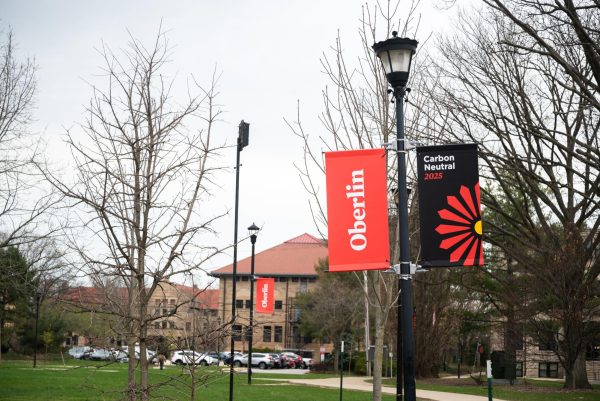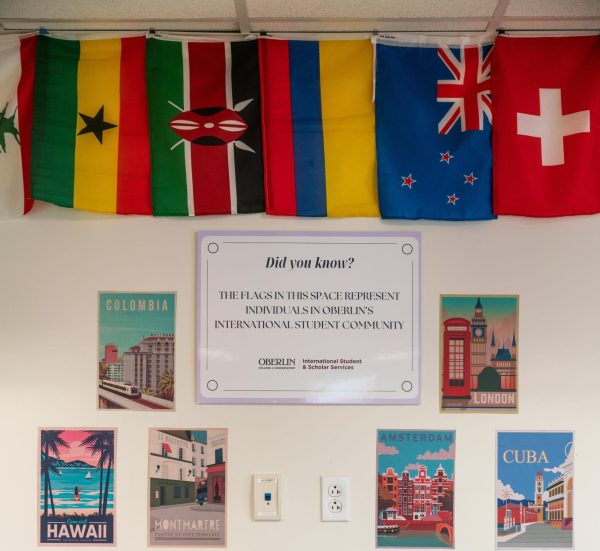Career Center Implements Changes to Junior Practicum
The Career Exploration and Development Center is launching Junior Practicum 2.0 this semester. This updated version of Junior Practicum aims to be more accessible and to increase opportunities for students to gain experience applying to jobs and internships. The new Junior Practicum will do away with the weekly course requirement and will now allow students to apply for specific internships rather than being matched to them.
In the previous model of Junior Practicum, students were required to enroll in a two-credit LEAD course that would provide them with information and skills to help them explore their chosen professional field. The new model has replaced this class with a series of workshops and panel discussions spread throughout the semester.
According to Executive Director of Career Exploration and Development Anthony Pernell-McGee, this change was made in order to decrease the burden on students, as well as to make the resources it offers more accessible to student-athletes.
“I felt as if it was putting more burden and pressure on the students,” Pernell-McGee said. “The program is more flexible and we’re going to be offering workshops and career panels at 7:30 [p.m.] so that the athletes will be able to attend as well.”
While students will now have to select and apply for their own internship over the summer, they will have the opportunity to browse internships posted by employers, many of whom are Oberlin alumni, on a new online platform. The program will continue to offer funding for unpaid or low-paying summer internships.
According to Pernell-McGee, having students proactively seek out internships will create a stronger and more engaged partnership.
“It’s making sure that the alum has a student who is interested in what they’re doing,” Pernell-McGee said. “And to me, the only way to do that is to really interview the student so that the student and the alum are in alignment in that this is the best match.”
He also hopes that this change will help students build critical cover letter writing and interviewing skills.
“I do believe that having students apply for internships that they’re interested in and then having them sit for an interview, which helps them hone their interview skills — I think that is the best practice, so I’m excited to see the results this year,” Pernell-McGee said.
Rami Puangkam, OC ’22, worked as a peer-to-peer career advisor during last year’s Junior Practicum. She agreed that the matching system had challenges that the new system might alleviate.
“I think one of the things that was very big last year was that if you get a job or internship, you have to be a good representative of Oberlin so that in the future, students can get the same position or more opportunities,” Puangkam said. “I feel like if they’re not actually engaged or don’t actually want the internship in the first place, they might not act in the best interest they could have.”
She also believes that the new system will force students to be more proactive about their internships and lend them greater agency in the process, though she recognizes that the previous system had some benefits that this year’s version will miss out on.
“I feel like the matching is kind of nice because it helps students to find jobs, especially for international students, which is hard sometimes for landing your own internship,” Puangkam said.
She also mentioned that with the lack of a required weekly course, the Career Center will have to be more proactive in getting the information out to students.
College third-year Jessie Goldberg applied for the new version of the Junior Practicum. She noted that while the new internship process might be more challenging, it is also more realistic.
“It sounds like it might require more effort from me to actually get an internship this summer, but I think that mirrors more the reality of getting a job,” Goldberg said. “It’s good and bad, I guess, because you don’t really have that built-in safety net.”
While some of the specifics have changed within the Junior Practicum, Pernell-McGee noted that the core values are still the same.
“Internships are important to the student’s development and career exploration,” Pernell-McGee said. “You are developing those core skills that employers are looking for. You are evaluating and assessing if this internship is the right fit for you, for your career. You are just making yourself more marketable and you are developing those core skills that you can’t get in the classroom.”
Applications for the Junior Practicum are due Oct. 14.






